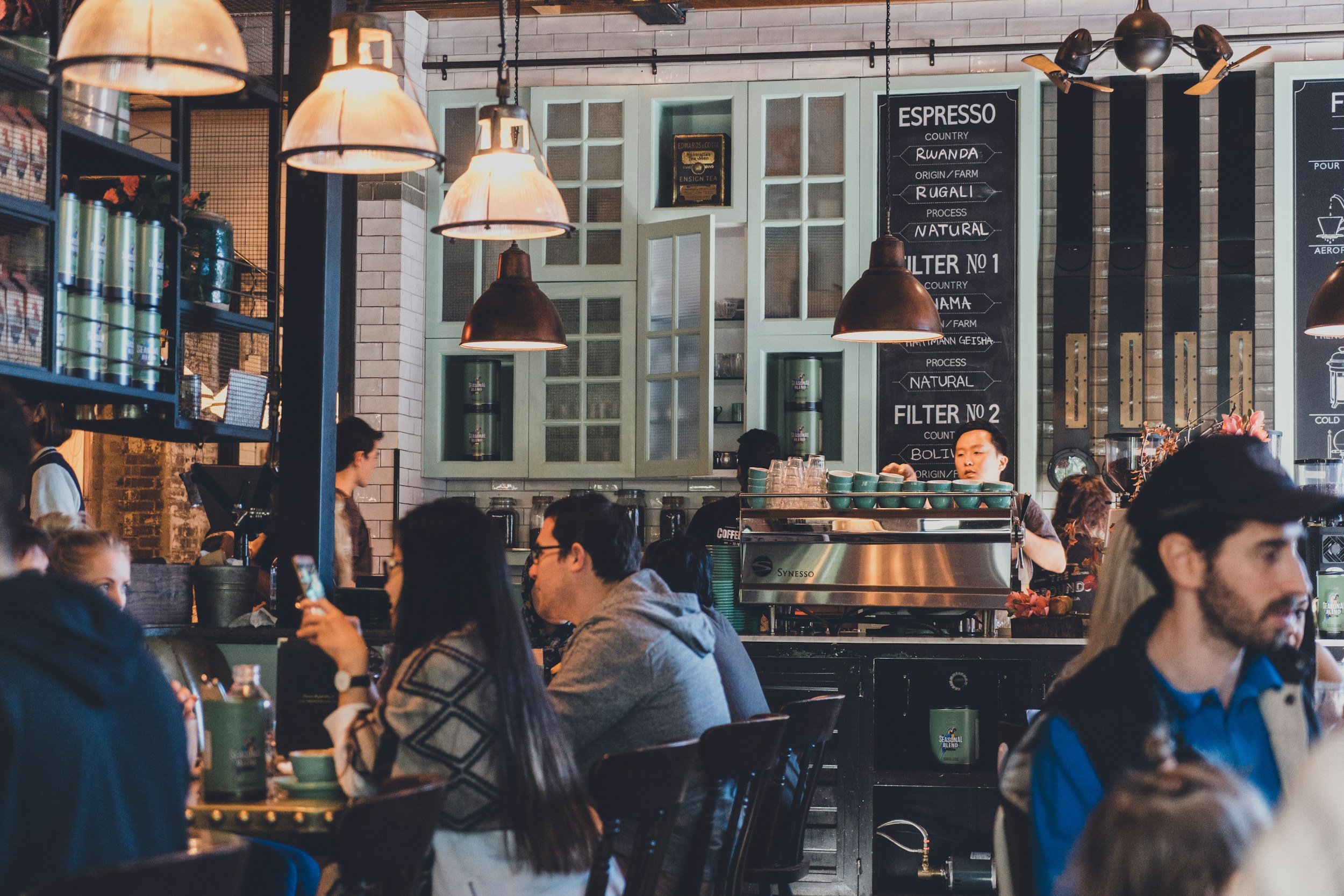Why Your Business Will Struggle Without Proper Marketing in 2025
Why Your Business Will Struggle Without Proper Marketing in 2025
If you’re a business owner—whether you run a restaurant, a coffee shop, a boba store, or even a takeout-only spot—you might be tempted to think that marketing doesn’t matter as much as your product. “I have great food. My customers love me. I get referrals. That’s enough, right?”
Wrong.
It doesn’t matter how delicious your dishes are, how smooth your coffee tastes, or how Instagram-worthy your boba drinks look in person. In 2025, the reality is this: If you don’t invest in a website, social media, and high-quality content, your business will get left behind. Let’s talk about why.
1. No Website = No Trust
Imagine this: a customer hears about your business and Googles you to learn more. What happens when they can’t find a website?
They move on. Studies show that 81% of consumers research businesses online before visiting them (BlueCorona). Without a website, you’re invisible to the majority of potential customers.
They question your professionalism. In 2025, not having a website screams “unreliable” to customers. 75% of people judge a business’s credibility based on its website (Blue Corona).
But having a poorly executed website isn’t much better. In fact, it might even hurt you more. Here’s why:
Low-Quality Images Undermine Your Brand:
A website filled with dark, blurry, or unprofessional photos creates the impression that your business doesn’t value quality. Customers associate what they see online with the experience they’ll have in person. If your photos make your food or space look unappealing, potential customers will assume that’s what they’ll get.Stock Photos Look Generic and Inauthentic:
Using stock images instead of real photos of your dishes, drinks, or atmosphere makes your business feel faceless and generic. Today’s customers crave authenticity. They want to see what sets you apart—not the same photos they’ve seen on countless other websites. According to Forbes, customers are more likely to trust and engage with brands that share genuine, personalized content.DIY Designs Can Be a Turn-Off:
Building your own website with cookie-cutter templates might save money upfront, but clunky navigation, inconsistent branding, and outdated layouts frustrate users. If your website doesn’t look professional, potential customers may assume the same about your business.Missed Opportunities for Optimization:
A DIY website often lacks critical elements like SEO optimization, mobile responsiveness, or proper load speeds. Slow, poorly optimized websites lose customers fast—53% of users abandon a website that takes more than three seconds to load (Think with Google).
This applies to all businesses—restaurants, coffee shops, takeout joints, and boba spots. Your website is your digital storefront. Without one, or with a poorly executed one, you’re not just missing opportunities—you’re actively driving customers to your competitors who invest in professional, polished online experiences.
2. Social Media Isn’t Optional Anymore
Here’s a hard truth: If you’re not active on social media, you don’t exist to today’s customers.
Over 50% of dining decisions are influenced by social media. That means potential customers are scrolling through Instagram, TikTok, and Facebook, deciding where to eat, drink, and hang out. If your business isn’t there—or worse, your profile is inactive or full of bad photos—they’re choosing someone else (ProfileTree).
Bad content hurts you more than no content. Grainy photos, inconsistent posting, or poorly written captions make your business look unprofessional. Customers associate the quality of your content with the quality of your product.
DIY Social Media Isn’t Enough. Many business owners think they can manage their own social media to save money, but this often leads to inconsistent posting, unprofessional visuals, and missed opportunities. 59% of customers prefer to buy from brands they follow on social media, but only if the content resonates with them (Hootsuite).
3. Cutting Corners Costs More Than It Saves
Let’s talk about what happens when you cut corners on marketing:
You lose customers to competitors. Restaurants and shops that invest in marketing grow their revenue 2.5x faster than those that don’t (AppFront). Cutting corners now might feel like saving money, but you’re actually losing thousands in missed revenue.
You waste time. DIY efforts often need to be redone. Whether it’s a poorly designed website or ineffective social media posts, trying to save money by doing it yourself usually means you’ll have to pay more later to fix it.
Your Business Stagnates
In today’s digital-first world, 90% of diners research restaurants online before deciding where to eat (Upserve). If you’re not investing in marketing—whether it’s social media, a professional website, or high-quality content—you’re effectively invisible to new customers.
This means you’re relying solely on your existing base to keep your doors open. That’s a dangerous strategy in a landscape where diners are constantly looking for new experiences, and your competitors are actively fighting to capture that demand.
4. It’s 2025—The Rules Have Changed
The way customers discover businesses has evolved. Word-of-mouth isn’t enough. Here’s the reality:
Search engines drive traffic. If you’re not on Google, you don’t exist.
Visuals matter. If your competitors have stunning photos and videos, and you don’t, guess who gets the customer?
Convenience is king. Customers want to order online, book reservations digitally, or get directions with one click. Without a website, they can’t.
When to Invest in Professional Marketing
If you’re experiencing any of the following, it’s time to stop cutting corners and get professional help:
Your sales are flat or declining. You’re not attracting new customers.
You’re too busy to keep up. Running a business is a full-time job. Marketing is, too.
Your competitors are doing better. If they have active social media, stunning websites, and better online reviews, they’re pulling ahead.
The Bottom Line
In 2025, your business’s success depends on your ability to adapt to the digital age. Great food, loyal customers, and referrals are no longer enough. Without a professional website, active social media, and compelling content, you’re falling behind.
Let’s make sure that doesn’t happen.
Contact Slowmo Creative Today to create a marketing strategy that works for your business—and keeps you ahead of the competition.







